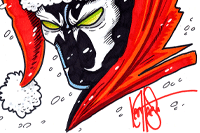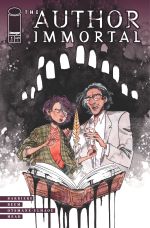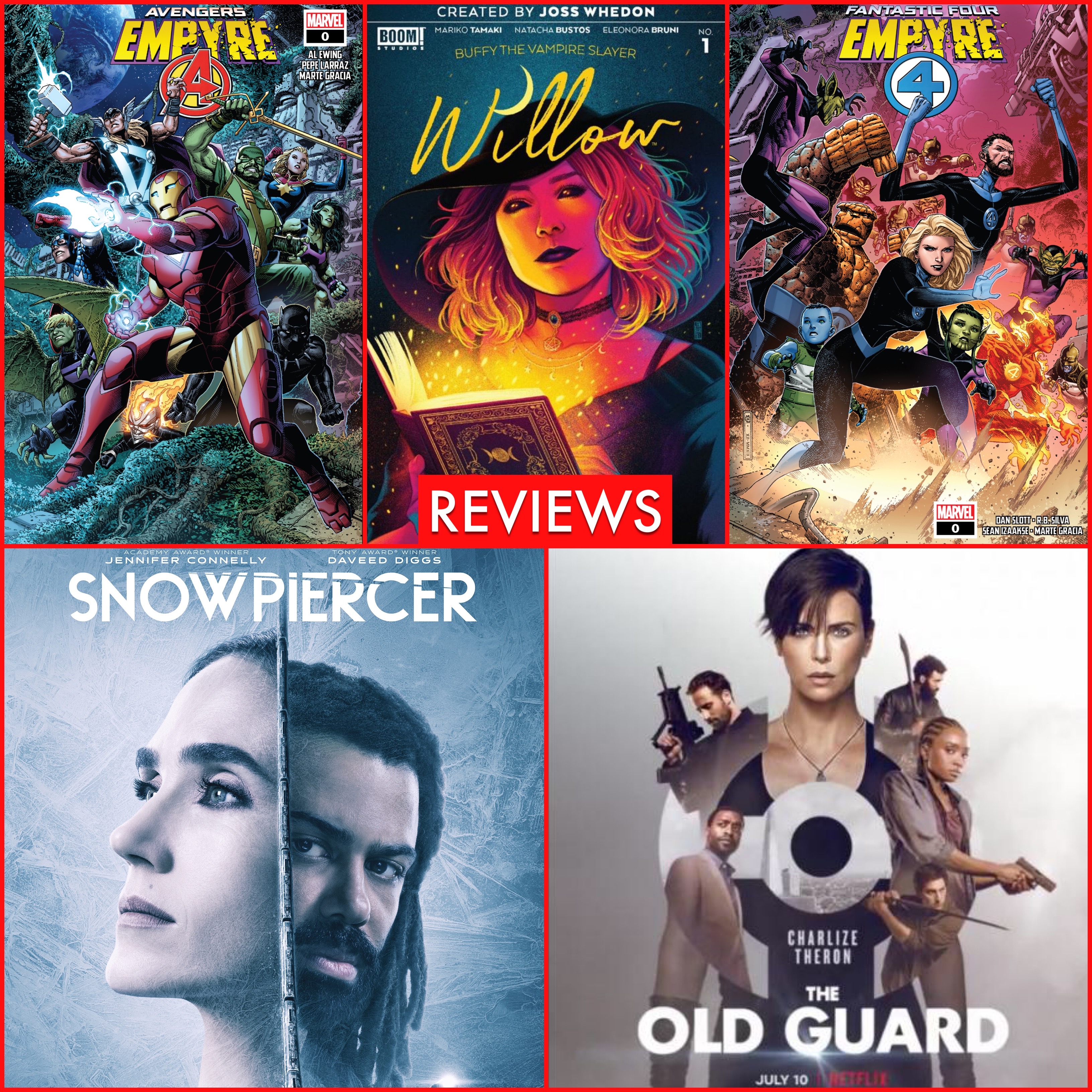|
 |
FOR
TOMMY: CHRISTOPHER GOLDEN
By
Richard Johnston RICHARD:
Did you just wink at me? Hmmm Okay, Mr Flirtatious, how does
it differ than working with comic book companies' own franchises?
What about something like an X-Men novel for a publisher which
then has to be approved by Marvel? How does that differ from,
say, writing your Wolverine or X-Man comic book in terms of
getting approval?
CHRISTOPHER:
Work for hire is work for hire, really. You get to work with
characters you love, but you have to play by the rules. You
know that going in, and there's no problem there. I've had
wonderful experiences with editors in that regard, and terrible
ones as well. Peter Tomasi at DC (editor of Dr. Fate) was
fantastic to work with. Ralph Macchio at Marvel. Joe Illidge,
when he was with DC. Some editors want to help you do your
best, and others want to find a way to make you do what THEY
would do. The latter approach is the recipe for sh*t.
RICHARD:
And is all this any different than writing a Buffy novel that
has to be approved by Fox in terms of process? And how does
that differ from selling in a Buffy comic book?
CHRISTOPHER:
I was fortunate with Buffy, both in novels and comics, in
that I had editors and a licensing person at Fox who realized
that I had a love for this show and its characters, and that
I knew what I was talking about. Not to say that I was the
ultimate expert, but just that I was going to try to make
the characters as true to the series as possible. As for the
process, it's all roughly the same. You pitch the idea, you
revise it based on comments, you write the novel or the script,
you revise that based on their requests. For the moment, though,
I'm not really doing any work for hire novel writing anymore.
The last one I did, JUSTICE LEAGUE: EXTERMINATORS, comes out
in July '04, but I turned it in back in February '03, and
that's the end of my work for hire career, at least for a
long stretch. I'm fortunate enough to have all kinds of original
projects to focus on.
RICHARD:
So it's pretty much of a muchness working for corporate types?
Nothing much varies, medium to medium, company to company?
CHRISTOPHER:
I wouldn't say THAT. As noted, there are just as many assholes
and idiots as there are clever, talented people in those positions,
people I've had to answer to. What differs is WHO you're working
for, on an individual basis. My approach to the work never
differs.
RICHARD:
The issues of many chefs spoiling the broth - how does writing
Hellboy novels differ from these when, I presume, you've only
got one guy to deal with and you can always take him out for
a beer first?
CHRISTOPHER:
As I said, sometimes an editor can really nurture a book,
and sometimes they can f**k it up beyond all recognition.
Working on the Hellboy novels was a wonderful experience because
Mike was so open with the things I wanted to do. Before writing
the first one THE LOST ARMY, we talked for hours about the
various characters, and his feelings about them. At the time,
there wasn't as much material as there is now. I wanted to
make sure I got them right. Then, on BONES OF GIANTS, the
springboard idea was his, and we talked at length about what
I planned to do with it. The difference was that I was not
working with an editor who was hired to hold the reins on
a character he didn't create, but with the creator himself.
I wanted,
first and foremost, to make Mike happy. And then, within those
parameters, to make myself happy as well. Hopefully I did.
RICHARD:
You've written the same characters in comics and prose - still
something done by few writers. What differences do you find,
and how do they affect the story you're telling?
CHRISTOPHER:
Hmm. Only a couple of times. Novel writing is always completely
different from comics. It's much more difficult, much more
intense, and also far more rewarding. You can get inside the
character at a depth that is nearly impossible in comics.
But also, you get inside the reader's mind more, I think.
They're more a part of the story when they have to create
the images in their own minds. I love comics, but the restrictions
of pacing and structure can inhibit creativity somewhat.
RICHARD:
Are you a fan of the thought bubble then?
CHRISTOPHER:
Not especially. I don't despise them, but I try to avoid them,
myself. The one time I used A LOT of them was in a Spider-Man
Unlimited I did a number of years ago, because Spider-Man
is all about the thoughts, and he was on his own in that issue.
Yet in the previous issue, I had none of them, or almost none.
It was just necessary. In retrospect, I would have done them
all in different sorts of narrative captions.
Pages:
1 | 2
| 3 | 4
Continued Here... |
 |






